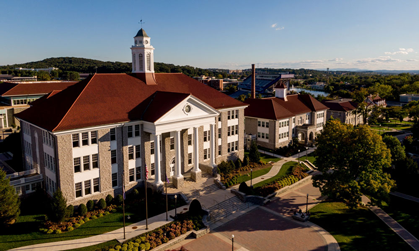In an open letter to the Secretariat of the United Nations Framework Convention on Climate Change (UNFCCC), a global coalition of non-governmental organizations, including FIDH and OMCT under the Observatory for the Protection of Human Rights Defenders, are calling on the institution to stop hosting the annual Conference of the Parties (COP) climate summits in authoritarian countries such as Egypt (COP27), the United Arab Emirates (COP28) and Azerbaijan (upcoming COP29).
To: the Secretariat of the United Nations Framework Convention on Climate Change (UNFCCC), Bonn, Germany
13 August 2024
Subject: Call to stop hosting the annual climate summits of the Conference of Parties (COP) in authoritarian countries
We write as a global coalition of non-governmental organizations to protest the continued awarding of hosting rights for United Nations conferences to repressive governments. For example, Azerbaijan was awarded hosting rights for the UN Conference of the Parties (COP) climate summit in November 2024, resulting in the government’s state security apparatus being deployed to repress and restrict civil society space in the country. Such actions against civil society have undoubtedly undermined campaigns aimed at promoting and protecting fundamental human rights and freedoms in regions or countries hosting UN conferences.
From Egypt during COP27 to the United Arab Emirates during COP28, civil society space has shrunk in countries hosting the COP, especially in oil-producing autocratic countries. Likewise, hosting COP29 in Baku, Azerbaijan has already led to the arrest of hundreds of human rights activists and journalists. The Secretariat of the United Nations Framework Convention on Climate Change (UNFCCC) must ensure that all COP hosts comply with international human rights law and do not use the COP as a pretext to censor and suppress civil society engagement and advocacy.
Article 21 of the International Covenant on Civil and Political Rights (ICCPR) states that “the right to freedom of peaceful assembly is recognized,” which is considered a fundamental human right. This right entails the corresponding obligation of States to respect and ensure its exercise without discrimination, and obliges States to refrain from unjustified interference and to protect participants. Azerbaijan has ratified the ICCPR and the European Convention on Human Rights.
The Subsidiary Body for Implementation stresses that UNFCCC meetings and related events must take place in venues where human rights and fundamental freedoms are promoted and protected and where all participants are effectively protected from violations or abuses. Therefore, the human rights situation in Azerbaijan is a matter of serious concern for both local and international civil society.
Given that Azerbaijani journalists and civil society organizations have already faced severe restrictions for several years, such as strict media registration requirements and restrictions on foreign funding of NGOs, the rights to freedom of expression and association have been severely curtailed. The dynamics of intensified repression, coupled with physical and economic threats, make it almost impossible for media and civil society organizations to carry out their work independently and without fear of persecution.
However, after being granted COP presidential status, the government of Azerbaijan has launched an unprecedented crackdown on independent media and civil society activists in the country. As of July 2024, the list of political prisoners in Azerbaijan includes at least 306 people.
The recent arrests of former Azerbaijani diplomats Emin Ibrahimov and a young Talysh scientist and ethnographer, Iqbal Abilovwho was arrested on 22 July 2024, has raised considerable international concerns about the human rights situation in Azerbaijan in the run-up to COP29.
In addition, the Azerbaijani government applies excessively restrictive measures to its prisoners: the life and health of Khalilov familya disabled human rights activist and blogger, is at stake while he is in prison on false charges of drug smuggling. Another alarming case is that of economist Fazil Gasimovwho began a hunger strike on June 14, 2024 in protest against unjustified prosecution and torture, seriously damaging his health.
According to Amnesty International on 29 April 2024, prominent human rights activist Anar MammadliHead of the Center for Election Observation and Democracy Studies and co-founder of the Climate of Justice initiative in Azerbaijan, was arrested.
Previous hosts over the past two years have also failed to respect human rights. In December 2023, when Emirati authorities hosted COP28 in Dubai, they charged at least 84 defendants in retaliation for the establishment of an independent advocacy group in 2010. Many of them were already serving prison sentences for the same or similar crimes. The “UAE84” unfair mass trial was characterized by serious violations of due process and fair trials, including restricted access to case materials and information, limited legal assistance, judges ordering witness testimony, violations of the principle of double jeopardy, credible allegations of serious abuse and mistreatment, and secret hearings. On July 10, in the UAE’s second largest unfair mass trial, the court convicted at least 44 defendants in the mass trial and imposed prison sentences ranging from 15 years to life imprisonment.
The previous year, NGOs and UN experts in Sharm El-Sheikh, Egypt, complained that climate activists and members of civil society were “subjected to intimidation, harassment and surveillance” during COP27 in November 2022.
Climate activists have complained that thousands of lobbyists from oil companies have attended climate talks in recent years, while activists’ ability to protest has been very limited. The UN can only guarantee the right to protest inside climate conference grounds, not outside. This has led to extremely limited protests on climate change and human rights issues in both Egypt and the United Arab Emirates, where protests are illegal. Human Rights Watch reported that in the United Arab Emirates, “Lobbying and protests inside the UN-administered ‘blue zone’ were also severely restricted, and the UNFCCC Secretariat imposed unprecedented restrictions on freedom of expression.” For example, an action featuring photos of imprisoned Emirati human rights activists was repeatedly postponed and allowed to go ahead only under significant restrictions.
We call on the UNFCCC to make public the hosting arrangements for future COPs and ensure that they comply with international human rights law, including by protecting freedom of expression and assembly.




